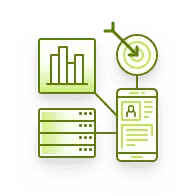Top Challenges for Beer & Wine Distributors: Addressing Key Issues
August 3, 2017 By Stacey Woods

I bet all your friends think that being a beer distributor is great. Loads of perks like free beer and, well… free beer. But you, as someone who is part of the beverage industry, know best: it’s not as simple as it sounds. In fact, you are facing many challenges. Here are our top seven – what are yours?
1. Growing numbers of SKUs
In the past decade, the average number of SKUs a beer distributor carries more than doubled.
Managing inventory, order taking and processing, delivery and forecasting for your growing number of product lines is becoming more and more complex. While the back-office systems can handle inventory and billing for your growing business, you should also consider a catalog-centric solution that will support your sales staff’s needs in the field, as well as providing a great sales route planner tool to them.
2. Running effective campaigns
In the competitive market of beer, marketing campaigns are key. But for a campaign to be truly successful, its terms need to be effectively communicated to all your field sales reps and applied to all sales channels.
You will also want to make sure that your customers comply with the terms of your campaigns. For that, you need to use your sales reps or merchandisers to collect visual data in the field. otherwise how can you control what’s happening?
Knowing what your competitors are doing and responding immediately is key in a competitive market. If your sales reps share what they see in the field with you, you can use it to decide to change your promotions immediately. Being able to easily set up a promotion for specific customer segments and apply it to all sales channels is key.
3. Regulation
How does one handle all the rules and regulations? State-licenses, regulations at both federal and state level, rules about production, distribution, packaging, pricing. Need I go on? Well yes, because I haven’t mentioned the different taxation levels in every state. How can anyone manage to keep track of all this information? Your sales reps must be constantly on the phone to the office asking for information.
Many US states have regional restrictions in place as well as federal regulations. This means local jurisdictions regulate and tax beer and in some cases even prohibit the sale of alcohol. Sales order management need to make sure that catalogs, campaigns, pricing and taxation are set to match the regulations you and your customers must abide by.
4. Selling to different types of retail or service point types
Beer is sold in a variety of outlets. Consumers may pick up a beer in a small local store or buy a 6-pack from a large supermarket. Or share a drink at a restaurant with friends.
Each retailer has its own needs and requirements. Mr. Supermarket reorders the same products every week, but Ms. Restauranteur might be persuaded to introduce a new brand. Mr. Supermarket orders during office hours, whilst Ms. Restaurateur orders late at night, after her restaurant closes. Trying to accommodate the specific way that each retailer wants to order is another challenge beer distributors are facing.
And then we have payment options. Mr. Supermarket has a standard payment method arranged, but Ms. Bar pays COD. Obviously, your sales reps need to know how everyone pays, including whether they have any outstanding debt or invoice disputes. Without an efficient system in place, your sales reps are in the dark, and again, must rely on calls to the office for information.
5. Working with multiple warehouses
If you are a large drinks distributor, you probably manage several warehouses.
As each warehouse has different inventory levels, you need to be able to find the most cost-effective way to fulfill the B2B orders, taking into account the inventory at each warehouse, time constraints, and other business data. You may need to be able to easily split the order between warehouses, or change a delivery date to save on delivery costs.
6. Managing your field sales reps
Since sales reps are a significant expense, managing their time and activities correctly is one of your top challenges.
You want to manage their time (or give them tools to do so): plan their schedule, decide which customers they should visit based on your business needs, and most importantly – make sure their time with the retailer is spent on what you think is important. You may want your reps to collect information about a competitor’s campaign, take stock, discuss debts – and you need to find a way to efficiently communicate this to your reps and review what they’ve done.
Another important challenge is benchmarking: being able to keep track of and compare sales reps’ performance. Who is not doing as well as the others? Who is excelling in pushing campaigns?
7. Information in the field
Your field sales reps need a lot of data when in the field: license terms, credit terms, debt, addresses and names, purchase history, campaigns, regulations, price lists per customer, order status. That’s a lot.
Of course, they can call the office for the information. For you, that means that a couple of people in your office have to spend most of their time answering calls from the field for every direct store delivery.
What a waste of time and resources.
The mobile revolution means that your reps have a phone or a tablet with them anyway. Why not use that to provide them with all the information they may need when meeting a customer?
Having full customer data such as up-to-date purchase history (in all channels), top selling items, credit and debt, and more, will enable your reps to knowledgably interact with their customers, build a meaningful relationship aimed at developing their business, and tailor future promotions to their specific needs.
—
Did you recognize any of the above challenges? What are your challenges?























